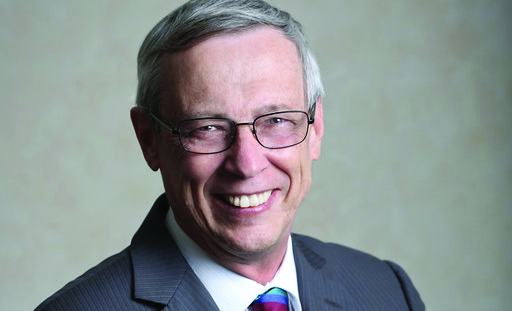By David Lyons
The rush is on in troubled Brazil to wrap up construction projects in time for the 2016 Summer Olympics. With roughly three months to go before the opening ceremonies in early August, a delegation from the International Olympic Committee reportedly concluded that “thousands and thousands of little things” are left to be completed, from hotels to transit projects to venues such as an indoor cycling track.
But it’s not all that bleak, according to Miami construction lawyer Jerry P. Brodsky, a partner and director of the Latin American practice group at Peckar & Abramson.
Earlier this year, Brodsky and lawyers from Construlegal, an alliance of construction law firms in the Americas, were appointed by the Rio 2016 Organizing Committee to develop and run a program of dispute resolution boards to ensure that an array of temporary structures are completed in time for the games to start as scheduled on Aug. 5.
“There is a tremendous amount of construction and preparations that have to be accomplished for the games to start on time,” Brodsky says. “There are great opportunities for things to go amok. Every host city has to be very careful.”
The projects overseen by the boards include a media center, temporary pools,
portable buildings, spectator stands, interiors for the Olympic Village and fire detection and suppression systems.
In the past, cities that hosted the Olympics would end up being saddled with facilities that sat idle long after the games had concluded. “People who live there don’t use the facilities,” Brodsky says. “To avoid that, London, for example, engaged in the concept of building temporary structures.” After the 2012 Summer Olympics ended, the temporary structures were removed.
Brodsky, who is fluent in English, Spanish and Portuguese, and certified by the Florida Bar as a construction law specialist, is well-suited to lead the effort to establish the dispute board system.
He represents international and domestic general contractors, construction managers, sureties and other construction professionals in the U.S. and throughout Latin America and the Caribbean. He’s been involved in negotiations, mediations, arbitrations and the litigation of construction contract claims, and he also serves as referee and dispute board member in international disputes involving construction of infrastructure projects in Central America.
“There are many parts of the world like the United States where these dispute boards are very common,” he says. For example, public agencies such as the Florida Department of Transportation use them to keep highway projects free of delays and work stoppages. “In Brazil, there was no experience with dispute boards. They knew about the models but did not adopt them. The [Olympic] organizers wanted to use dispute boards, but they didn’t have experienced people, and that’s when they contacted me.”
Brodsky says he and a firm partner in Sao Paolo designed a program for the Olympics that includes the training of board members and chairs. There are now boards in place to ensure the completion of between 40 and 60 construction projects. “All of these people needed to be trained,” he says. “That was the first challenge.”
There are now a total of 99 trained board members and chairs, many of whom are attorneys. Others are psychologists and other professionals with technical backgrounds who have experience in construction projects. Most are Brazilians, but others were imported from elsewhere in Latin America.
“We were looking for people that would be good at helping to solve problems,” Brodsky says.
“The other challenge we had was that while we could train people, none of them would have any experience of working on a dispute board. For us, that was too much of a risk to take.”
The solution was to enlist people from places like Mexico, Chile, Peru and Honduras with dispute board experience.
To help secure buy-in from Brazilian officials, Brodsky summoned help from the Seattle-based Dispute Resolution Board Foundation, a nonprofit organization dedicated to promoting the avoidance and resolution of disputes worldwide. Despite the corruption controversies that have all but paralyzed the leadership of the Brazilian government, Brodsky says the Olympics are largely insulated from the chaos.
“The Olympics, more than anything else in Brazil, are handled with white gloves in terms of transparency, corruption and ethics,” he says. “It was very important for the Brazilians to have not just Jerry Brodsky’s dispute board program, but something with institutional support. I went to the Dispute Resolution Board Foundation and told them I had an opportunity to put something together for the Olympics. They said, ‘Where do we sign up?’”
Thus far, the projects overseen by the dispute boards Brodsky established have been running smoothly. “The reports I have are pretty good. They seem to be running on time,” he says, adding, “The Olympics have never been delayed. And they are not going to be delayed now.”↵
David Lyons is a past editor-in-chief of the Daily Business Review. He is principal of Lyons Strategic Communications of Fort Lauderdale.
Duane Morris Grows
Duane Morris LLP has added five partners to its Miami office from Carlton Fields: Robert A. Zinn, former president of Akerman, joined the corporate practice group; William D. Rohrer and Anastasios G. Kastrinakis joined the firm’s tax practice, which is part of the corporate group; Marsha G. Madorsky joined the wealth planning practice group; and Roger S. Goldman joined the real estate practice group.
In a statement, Zinn, a specialist in the automotive industry, called Duane Morris “a great fit for us,” adding that the firm is “well-known for its collegial culture, collaborative approach and business savvy.”
Founded in Philadelphia, Duane Morris has more than 750 attorneys in the U.S. and internationally. The firm opened its Miami office in 1999.













